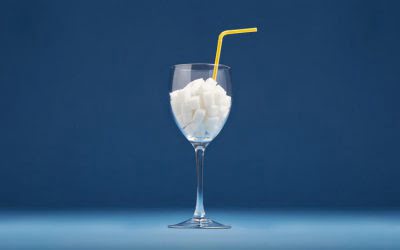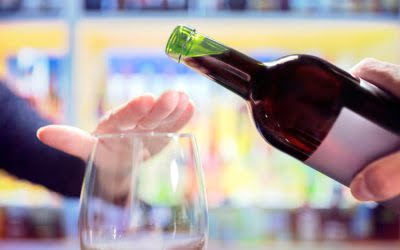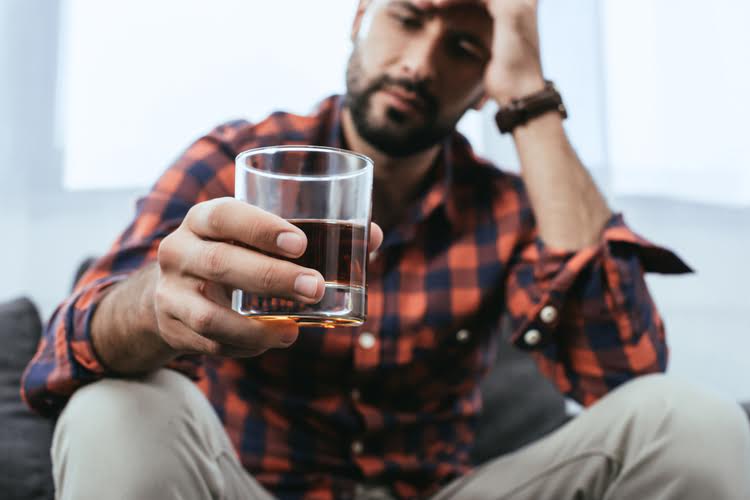Treatment and Recovery National Institute on Drug Abuse NIDA
• Developing a detailed relapse prevention plan and keeping it in a convenient place for quick access when cravings hit, which helps guard against relapse in the future. A good relapse prevention plan specifies a person’s triggers for drug use, lists several coping skills to deploy, and lists people to call on for immediate support, along with their contact information. In addition, self-care is a vital foundation https://www.globalfashionexchange.org/explore-the-world-of-sustainable-fashion/ for a healthy new identity. At the very least, self-care should include sleep hygiene, good nutrition, and physical activity. Sleep is essential for shoring up impulse control and fostering good decision-making. Another vital element of care during recovery is relapse prevention—learning specific strategies for dealing with cravings, stress, setbacks, difficult situations, and other predictable challenges.

How to Help a Person Recovering From an Addiction
Find treatment programs in your state that treat recent onset of serious mental illnesses. Find Support is an online guide that helps people navigate through common questions when they are at the start of their journey to better behavioral health. Get professional help from an addiction and mental health counselor from BetterHelp via phone, video, or live-chat. Therapy for phone addiction may be conducted at a therapist’s private office, a school, community center, and even online. Many people prefer online therapy for privacy, flexible scheduling, and ease of switching therapists. As of 2024, there are over 6.8 billion smartphone users in the world and within that population, 6.3% have a phone addiction.
Lifestyle changes
Like other complex illnesses and disorders, addiction is multifactorial, resulting from a combination of genetic, social, psychological, and environmental forces. What’s more, many individuals who cycle in and out of recovery have various health problems, such as chronic pain or mental illness, that can affect recovery progress. Hogue’s HEAL-funded research aims to create tools for providers, youth, and their families to find lasting recovery by targeting three concrete principles. “A young person’s close family is almost always a key part of the solution,” Hogue says, adding that family isn’t just parents and siblings. For young adults, family also includes significant others and close friends who spend most time with that individual and are the source of both positive and negative influences. Additionally, medications are used to help people detoxify from drugs, although detoxification is not the same as treatment and is not sufficient to help a person recover.
- The more people you can turn to for encouragement, guidance, and a listening ear, the better your chances for recovery.
- People in early recovery typically need emotional and material support.
- We strive to create content that is clear, concise, and easy to understand.
- While tragic, the 100,000 fatal drug overdoses last year actually claimed the lives of a tiny percentage of the 31.9 million Americans who use illegal drugs.
- It’s difficult to learn any new skill without trial and error, and this includes developing coping skills to manage or end drug use.
Caregiver Stress and Burnout
For many of those who are addicted, enduring even that action is unimaginable. What must follow is the process of behavior change, http://rql.kiev.ua/page/11 through which the brain gradually rewires and renews itself. Methadone treatment, whether for OUD or pain, is not without risks.
Tips to Cope With Stress

The NIH HEAL Initiative also partners with NIDA to fund research within the Consortium on Addiction Recovery Science, a nationwide effort that focuses on research network-building initiatives. Brains are plastic—they adapt to experience—and people can change and grow, develop an array of strategies for coping with life’s challenges and stressors, find new means of satisfaction and reward, and negotiate life ahead. Millions of people do, whether they were once compulsive users of opiates, alcohol, or gambling. One of the most significant factors contributing to relapse is psychological triggers. These include stress, anxiety, depression, and other mental health issues. For many recovering addicts, these emotions can become overwhelming and lead to a desire to use drugs as a coping mechanism.


There are many different treatments that can help you during the process of overcoming an addiction, including medical and psychological approaches. There is no one «right» type of addiction treatment, although some approaches are better supported by research than others. If you have an underlying mental health problem, such as anxiety or depression, it could worsen during the withdrawal phase. Healthcare providers can be very supportive and helpful while navigating these challenges. Perhaps the hardest preparations to make concern social relationships. For people living with addictions, some of their relationships may revolve around addictive behaviors.
- Through its colors, sounds, and vibrations, the technology purposely keeps its users engaged.
- Recovery from addiction is a developmental learning process, and people often stumble as they progress along a new and unfamiliar path.
- The group setting allows peers to both support and challenge each other, and creates a sense of shared community.
Alcohol use disorder

Genetic factors influence how substances are metabolized and experienced. Such biological differences can influence whether substance use continues and increases, remains “social” and occasional, or does not occur http://planovik.ru/mi/research20479.htm at all. In the early stages, however, those more genetically vulnerable to addiction are unaware of the risky path they are on; their experience is merely of a memorable and highly desirable new discovery.
